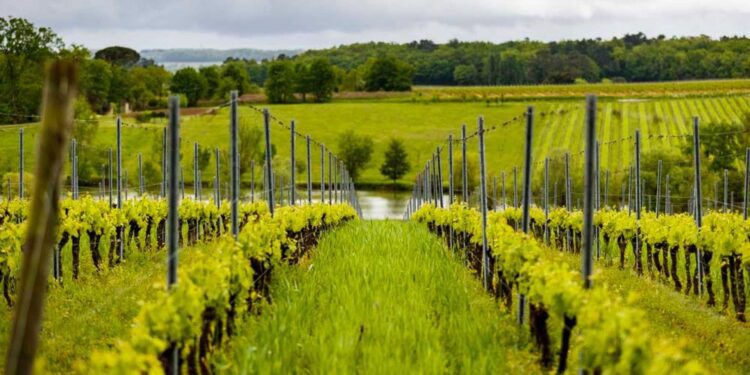Nestled within the famed Bordeaux region of France, in the rolling hills of Bergerac, Château Monestier La Tour is changing the way certain French vintners make wine. With roots dating back to the 18th century when the structure was a monastery, this winery recently completed a three-year conversion period that, as of 2017, marks it as a certified organic winery. Beginning with the 2018 vintage, bottles reflect the culmination of the brand’s commitment to organic growing and biodynamic principles of wine production.
After purchasing the winery in 2012, owners Karl-Friedrich Scheufele (co-president of Chopard) and his wife, Christine, made a substantial commitment to take a modern approach to winemaking using biodynamic and organic methods. The brand’s La Tour Grand Vin has since won several awards, as has its Cadran label. The wines and cuvées are free of sulfites, all reflecting the uniquely infused terroir.



When the Scheufele family took over Château Monestier La Tour, they began by completely renovating the château and the grounds, some areas of which date back to the 13th century. Following a renovation by previous owners that took place from 1994 to 1998, The Scheufeles restructured according to the original Renaissance architecture and paid close attention to the land. Their goal: to make wines that respect nature and embrace local flavors. Interestingly, the idea of preserving the land parallels the ethos of Chopard, where ethical and Fairmined gold is now the norm. At the winery, the idea of biodynamics is applied not only to the vineyards but also to the treatment of the harvest and wine. In total, though, it is a slow and meticulous venture — something Scheufele is used to in the world of watchmaking.

Winery owner Karl-Friedrich Scheufele and his team care for approximately 30 hectares of vines (17 of which produce red grapes), yielding approximately 70,000 bottles of wine annually.
“I have learned that, like watchmaking, winemaking requires a lot of patience and attention to every detail,” he says. “Luckily, I have a lot of practice in that and have a firm relationship with time.”
Converting Château Monestier La Tour to organic certification has been, for the Scheufeles, all about preserving the nature and balance of the region. In the long term, their implementation of biodynamic agricultural processes should yield qualitative improvements in the terroir. This produces the medley of depth, freshness, and fruity flavors in the resulting wines. The couple enlisted the help of consultant oenologist Stephane Derenoncourt to implement the organic processes and produce Bergerac, Côtes de Bergerac, and Saussignac wines.



Essentially, biodynamic agriculture eschews pesticides, biocides, fungicides, and other artificial fertilizers. It is all about natural preparation and composting for the soil to instill flavor. As such, Château Monestier La Tour has a rich and vivacious herb garden and herbatorium right on the premises. Because some of the desired plant species are not naturally present on the grounds, a garden ensures a continued supply of important herbs and flowers like chamomile, nettles, and thyme. Once mature, the plants are dried and stored, so they can be used as sprays to strengthen the vines. The herbs are all carefully selected for their abilities to fight disease or pests, or to enrich a flavor profile. In spring and fall, they are used to stimulate or slow growing. During spring months, the vines are stimulated with certain plants that “warm” them; in fall, they transition to a dormant state with the help of cypress or ivy.
Château Monestier La Tour officially opened its doors to visitors this past summer. A stroll through the winery, its vineyards, and the surrounding grounds presents a great lesson in nature, passion, and dedication. Touring the facilities offers a fantastic understanding of how these natural wines get their wonderful notes of lavender, berries, and more, all while preserving nature. It also offers grand insight into the patience and perseverance required to create organic wines.
Story Featured In Our March 2023 Issue

























